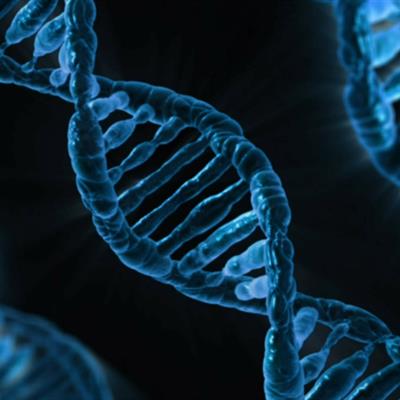Please be aware when registering, all times are in the Eastern Time Zone. Even for free events, you will need to click the "Proceed to Checkout" button and "Submit Order"
to complete your registration. If you do not receive an automated confirmation email, or if you have any questions about registration, please email
onlineseminars@saa.org.

Registration Closed!
Ancient DNA 101: What You Need to Know to Establish a Successful Project
When: December 12, 2017 12:00-2:00 PM ET
Duration: 2 hours
Certification: RPA-certified
Pricing
Individual Registration: $99 for SAA members; $139 for non-members
Group Registration: $139 for SAA members; $179 for non-members
Courtney Hofman is an assistant professor of Anthropology and co-director at the University of Oklahoma's Laboratories of Molecular Anthropology and Microbiome Research. Dr. Hofman has conducted research that integrates interdisciplinary methods and fields, including genomics, ancient DNA, proteomics, and archaeology to explore human-environment interactions on two very different scales. First, she investigates human-wildlife interactions and their influence on changing environments over the past millennia to inform conservation decisions. Second, Dr. Hofman conducts research on the evolution of the human microbiome using dental calculus and paleofeces from archaeological contexts. Dr. Hofman completed her PhD at the University of Maryland in collaboration with the Center for Conservation Genomics at the Smithsonian Conservation Biology Institute and the Anthropology department at the Smithsonian’s National Museum of Natural History, where she is also a research associate.
Dr. Christina Warinner is Group Leader of Microbiome Sciences in the Department of Archaeogenetics at the Max Planck Institute for the Science of Human History and a Presidential Research Professor and Assistant Professor of Anthropology at the University of Oklahoma, where she co-founded the Laboratories of Molecular Anthropology and Microbiome Research. Dr. Warinner earned her PhD at Harvard University in 2010 and completed her postdoctoral training at the Centre for Evolutionary Medicine at the University of Zürich, Switzerland. She has conducted ancient DNA research for more than a decade, and has published pioneering studies in human migration, Native American ancestry, ancient diet, and the reconstruction of the ancestral human microbiome. Her ancient microbiome findings were named among the top 100 scientific discoveries of 2014 by Discover Magazine, and her research has been featured in more than 75 news articles, including stories in Science, Scientific American, the LA Times, the Guardian, and CNN, among others. She has been featured in multiple documentaries, and her recent work on the peopling of the Himalayas appears in the PBS NOVA special Secrets of the Sky Tombs and the award-winning children’s book Secrets of the Sky Caves. She is a 2014 US National Academy of Sciences Kavli Fellow and a 2012 TED Fellow, and her TED Talks on ancient dental calculus and the evolution of the human diet have been viewed more than 2 million times.
Dr. Christina Warinner is Group Leader of Microbiome Sciences in the Department of Archaeogenetics at the Max Planck Institute for the Science of Human History and a Presidential Research Professor and Assistant Professor of Anthropology at the University of Oklahoma, where she co-founded the Laboratories of Molecular Anthropology and Microbiome Research. Dr. Warinner earned her PhD at Harvard University in 2010 and completed her postdoctoral training at the Centre for Evolutionary Medicine at the University of Zürich, Switzerland. She has conducted ancient DNA research for more than a decade, and has published pioneering studies in human migration, Native American ancestry, ancient diet, and the reconstruction of the ancestral human microbiome. Her ancient microbiome findings were named among the top 100 scientific discoveries of 2014 by Discover Magazine, and her research has been featured in more than 75 news articles, including stories in Science, Scientific American, the LA Times, the Guardian, and CNN, among others. She has been featured in multiple documentaries, and her recent work on the peopling of the Himalayas appears in the PBS NOVA special Secrets of the Sky Tombs and the award-winning children’s book Secrets of the Sky Caves. She is a 2014 US National Academy of Sciences Kavli Fellow and a 2012 TED Fellow, and her TED Talks on ancient dental calculus and the evolution of the human diet have been viewed more than 2 million times.
Recent technological advances in genetics, such as high-throughput sequencing (HTS), have radically transformed ancient DNA (aDNA) research, making it more accessible and affordable for archaeologists than ever before. This seminar will provide a brief introduction to the field of paleogenomics, with an emphasis on the range of questions that can be addressed using current technologies, as well as some potential challenges. We will also explore how much an aDNA study actually costs and the role of student training in aDNA labs. Participants will learn how to identify questions that are amenable to genetic analysis and acquire strategies for how to set up successful collaborations with aDNA labs.
- Provide an update on major changes in ancient DNA technologies over the past 5 years.
- Highlight the range of questions that current ancient DNA methods can investigate.
- Address challenges in ancient DNA research, such as sample preservation and data authentication.
- Provide strategies for identifying potential research partners and establishing successful collaborations with aDNA labs.
- Discuss the structural differences between how research and training is conducted within the fields of archaeology and genetics, and how this impacts ancient DNA research.
- Establish the importance of hypothesis-driven research, and dispel the “Doing the DNA” myth.


